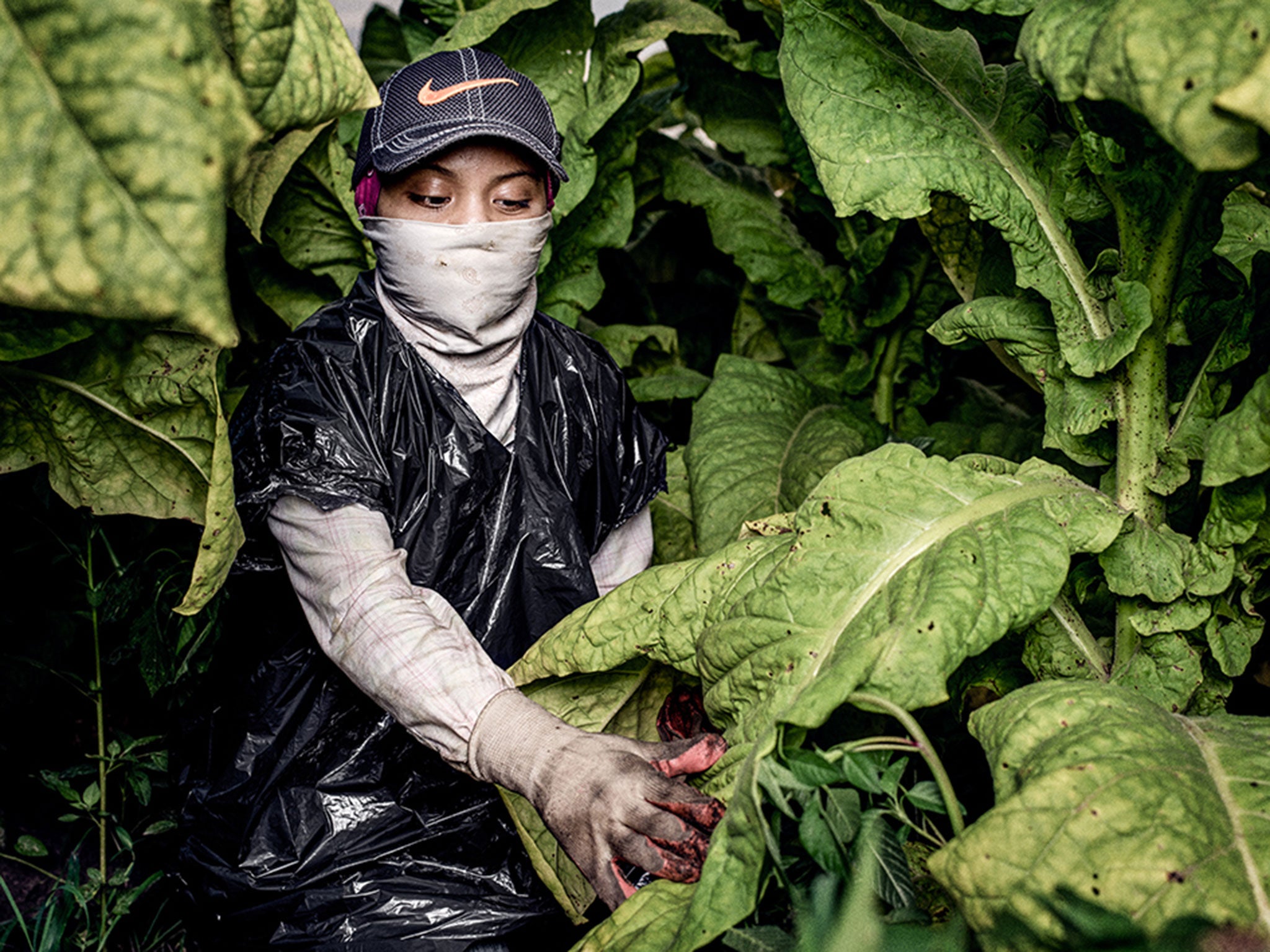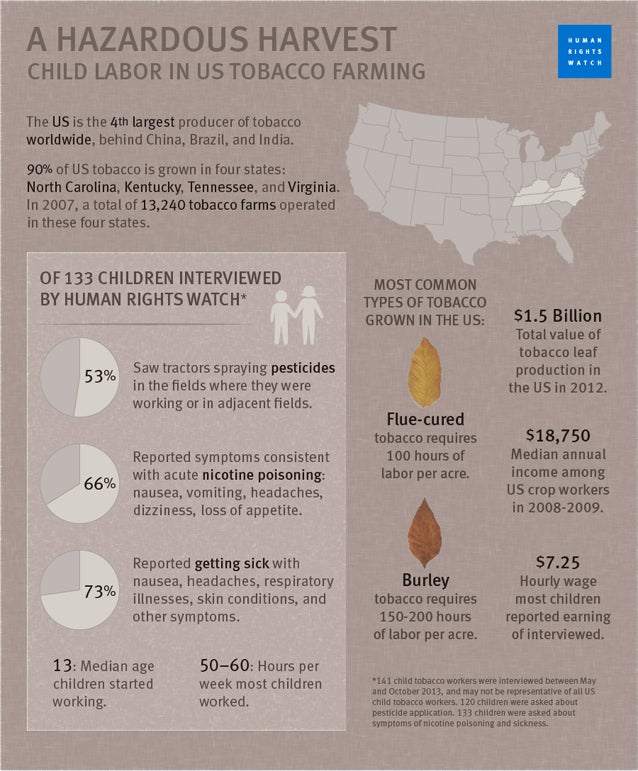Barack Obama bans e-cigarettes for children but not child labour on tobacco farms
Human Rights Watch says some children working on tobacco farms reported symptoms consistent with acute nicotine poisoning

Children as young as 12 will still be allowed to work on US tobacco farms despite new regulations banning the sale of e-cigarettes to under-18s, Human Rights Watch has said.
Although President Barack Obama's administration has extended the FDA's authority to include all tobacco products, including e-cigarettes, 12-year-olds can still work 50 to 60 hours a week outside of school on tobacco farms.
According to HRW, some children working on farms in North Carolina, Kentucky, Tennessee and Virginia have reported vomiting, nausea, headaches and dizziness while working with tobacco leaves.

The group warned the symptoms were consistent with acute nicotine poisoning.
They also suggest some of the pesticides commonly used in tobacco farming are known neurotoxins, which can destroy nerve tissue.
Under US law, children cannot work on farms during school hours, but they can work in the field at other times.
Hours typically increase in the summer, when school is not in session and the tobacco crop season is at its peak.
"If the administration can implement a ban on e-cigarettes for children in 90 days," a spokesperson for Human Rights Watch said, "it can ban children from working with toxic tobacco plants."
Join our commenting forum
Join thought-provoking conversations, follow other Independent readers and see their replies
0Comments